Health
These are the best prebiotic-packed foods for boosting gut health, new study finds
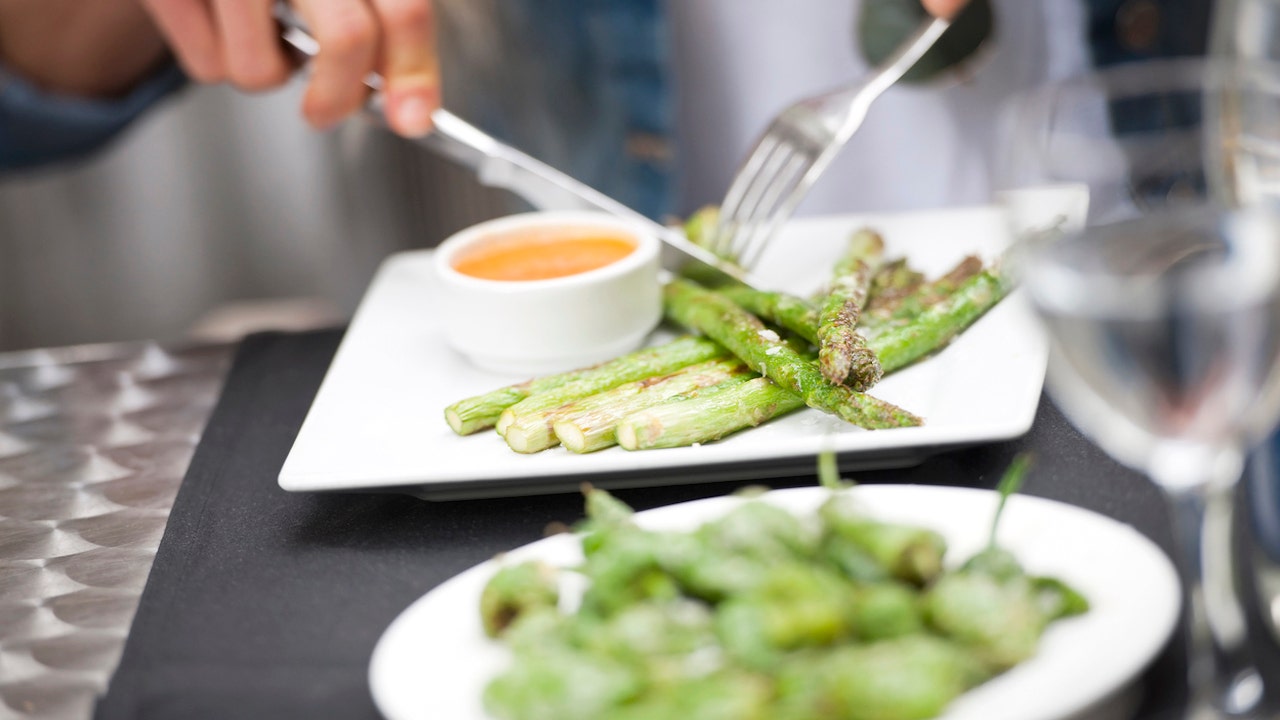
Consuming more prebiotic foods may help to regulate the body’s blood sugar while boosting immunity, digestion and the absorption of calcium and other minerals, a new study has shown.
Incorporating more prebiotic-packed foods may be easier than one might think, according to researchers from San Jose State University in California. They presented the findings of their study at the 2023 annual meeting of the American Society for Nutrition in Boston this week.
“The key takeaways are that eating prebiotic-dense foods can promote microbiome wellness, and the findings of this study show that consumption of 5 grams of prebiotics, as recommended by the International Scientific Association for Probiotics and Prebiotics (ISAPP), may be more attainable and accessible than one might think,” Cassandra Boyd, a master’s student at San José State University and a member of the research team, told Fox News Digital.
BE WELL: IMPROVE YOUR GUT HEALTH WITH 5 TOP TIPS FROM A NUTRITIONAL THERAPIST
Prebiotics are compounds typically found in plants that stimulate “good” bacteria in the gut.
These can help enhance the body’s anti-inflammatory response, regulate bowel movements and affect moods, according to the Cleveland Clinic’s website.
Consuming more prebiotic foods may help to regulate blood sugar while boosting immunity, digestion, and absorption of calcium and other minerals, a new study from researchers at San Jose State University in California has shown. (iStock)
These compounds can also aid in appetite control, boost calcium absorption to strengthen bones and help decrease the bad bacteria that can cause disease, the Cleveland Clinic also noted.
Prebiotics are different from probiotics — but both contribute to microbiome health.
Some studies have described prebiotics as fertilizer for the gut, while probiotics are actually live microorganisms found in certain foods and supplements that help maintain and improve “good” bacteria.
Onions and related foods contain multiple forms of prebiotics.
In the study, the researchers analyzed 8,690 foods in the Food and Nutrient Database for Dietary Studies (FNDDS).
Foods that pack the biggest prebiotic punch
The foods that packed the biggest prebiotic punch were dandelion greens, Jerusalem artichoke, garlic, leeks and onions, which ranged from about 100 to 240 milligrams of prebiotics per gram of food (mg/g), the report noted.
KIDS’ STOMACH PAIN IS COMMON COMPLAINT, YET MANY PARENTS DON’T SEEK MEDICAL CARE, POLL FINDS
Onion rings, creamed onions, cowpeas, asparagus and Kellogg’s All-Bran cereal also made the list, with each containing around 50 to 60 mg/g.
“The findings from our preliminary literature review suggest that onions and related foods contain multiple forms of prebiotics, leading to a larger total prebiotic content,” Boyd said in a news release.
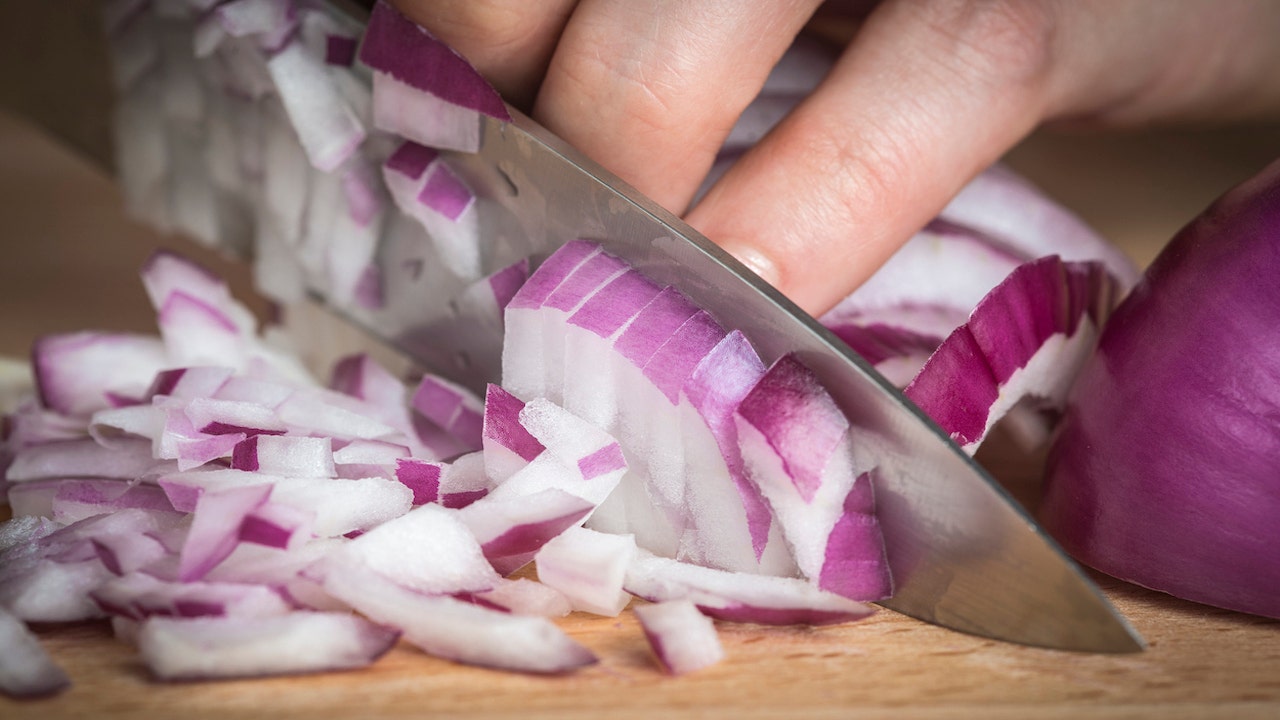
“If a small onion tends to weigh around 4 ounces, then by eating around half a small onion in a day, one can consume the recommended 5 grams of probiotics,” the researcher said. (iStock)
“Multiple forms of onions and related foods appear in a variety of dishes as both flavoring and main ingredients,” she continued. “These foods are commonly consumed by Americans and thus would be a feasible target for people to increase their prebiotic consumption.”
In a news release, the International Scientific Association for Probiotics and Prebiotics, which is a Colorado nonprofit that established the currently held definition of prebiotics, recommends a daily intake of 5 grams — but there are no set guidelines for consumer intake, Boyd said.
CLICK HERE TO SIGN UP FOR OUR HEALTH NEWSLETTER
“What we can currently recommend is to consume more of the top prebiotic-containing foods,” she told Fox News Digital.
“Onions are an easy-to-find, commonly consumed food, and the example we have been using is a small, raw onion.”
She also said, “If a small onion tends to weigh around 4 ounces, then by eating around half a small onion in a day, one can consume the recommended 5 grams of prebiotics.”

Prebiotics are compounds typically found in plants that stimulate “good” bacteria in the gut, which can help enhance the body’s anti-inflammatory response, regulate bowel movements and affect moods. (iStock)
Wheat-containing foods were low on the list of prebiotic foods, according to the news release.
Foods that had little or no prebiotic content included dairy products, eggs, oils and meats.
“Additionally, evaluating the effects of cooking on the prebiotic content of foods is necessary, because many prebiotic-containing foods are cooked before consumption,” Boyd added.
The investigators aim to provide a database of the estimated prebiotic intake for certain foods, which will help future researchers explore the correlation between prebiotics and health and disease variables.

Health
Flexitarian vs. Vegetarian — What’s the Difference? | Woman's World

Sign Up
Create a free account to access exclusive content, play games, solve puzzles, test your pop-culture knowledge and receive special offers.
Already have an account? Login
Forgot your password?
Get back to the Sign In
Use left and right arrow keys to navigate between menu items.
Use escape to exit the menu.
Health
Many families take patients off life support too soon after traumatic brain injuries: study
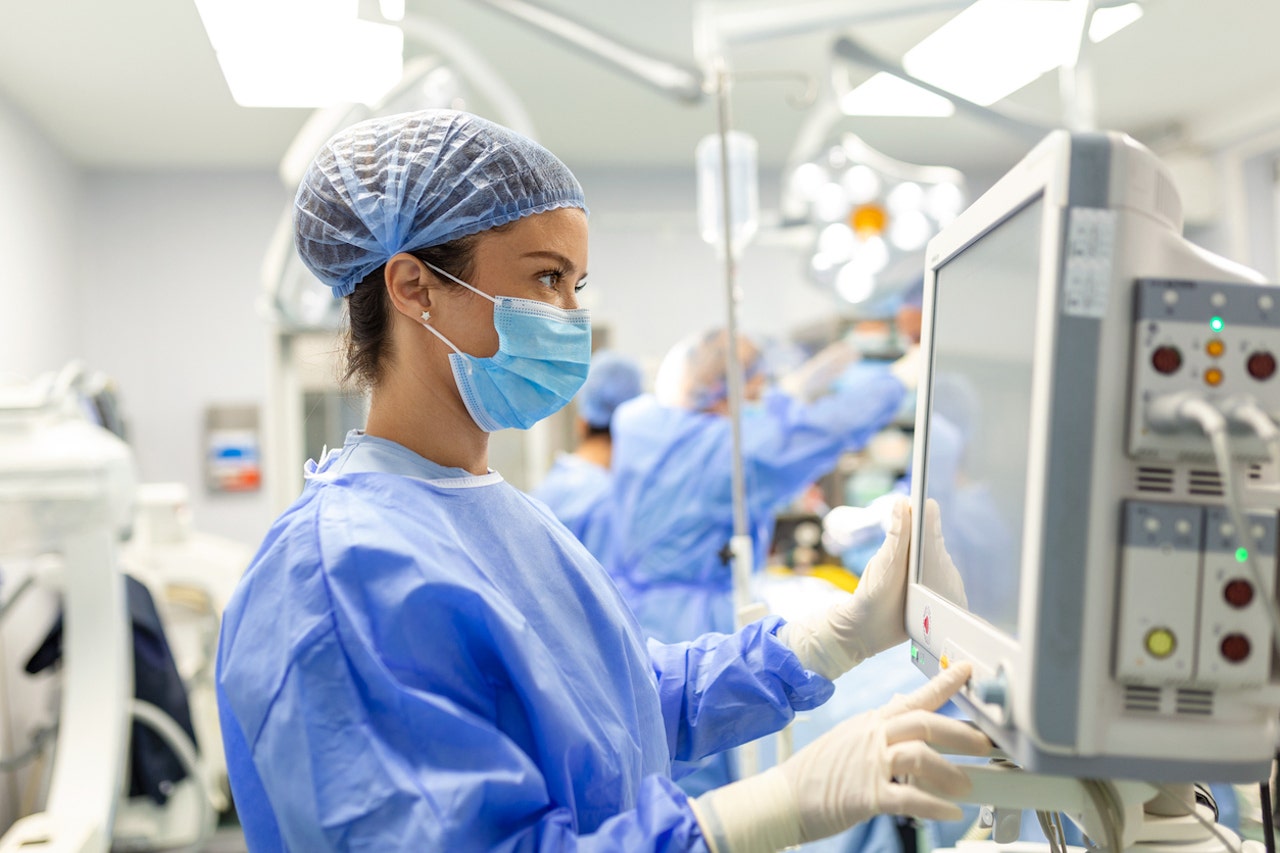
Many patients who died after traumatic brain injuries may have survived and recovered if their families had waited to take them off life support, a new study found.
Researchers from Massachusetts General Hospital, Harvard Medical School and other universities analyzed “potential clinical outcomes” for patients with traumatic brain injury (TBI) who were removed from life support, according to a press release.
The study included 1,392 patients who were treated in 18 trauma centers across the U.S. over a 7½-year period.
HUNDREDS OF RURAL HOSPITALS ARE IN DANGER OF SHUTTING DOWN, STUDY FINDS: ‘AT RISK OF CLOSURE’
Using a mathematical model, the researchers compared patients for whom life support was withdrawn to similar patients who were kept on life support.
Among the group for whom life support was not withdrawn, more than 40% recovered at least some independence, according to a press release.
Many patients who died after traumatic brain injuries may have survived and recovered if their families had waited to take them off life support, a new study has found. (iStock)
The researchers also discovered that the notion of remaining in a vegetative state was an “unlikely outcome” six months after injury.
When designing the study, the team didn’t know what to expect, according to study author Yelena Bodien, PhD, of the Department of Neurology’s Center for neurotechnology and neurorecovery at Massachusetts General Hospital.
HOME HOSPITAL CARE BRINGS ‘PHENOMENAL’ BENEFITS TO PATIENTS AND PROVIDERS, STUDY FINDS
“Our anecdotal experience was that some families are told their loved ones had no chance for recovery, they would never walk, talk, work or have a meaningful relationship again — yet they chose not to discontinue life support and their loved one made a remarkable recovery,” she told Fox News Digital.
“On the other hand, clinicians are under a lot of pressure to make early prognoses and do not want to commit someone to a life that would never be acceptable to them, so it could be that those patients who died after life support was withdrawn would have had very significant impairments otherwise.”
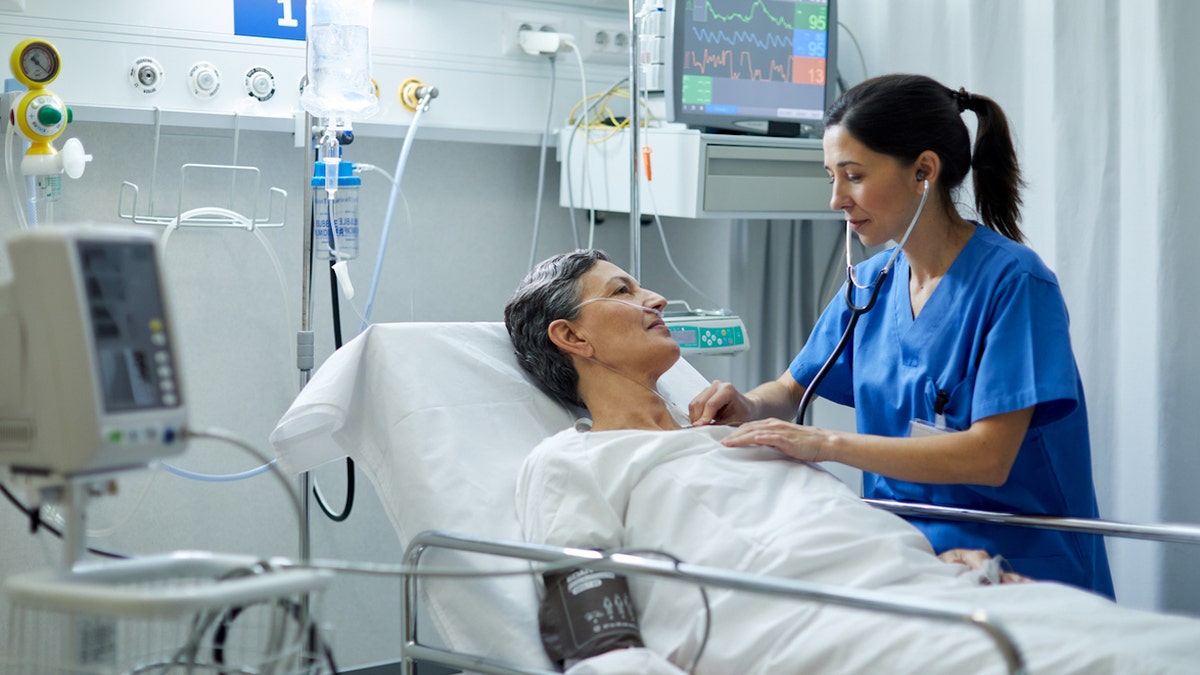
“Our anecdotal experience was that some families are told their loved ones had no chance for recovery … yet they chose not to discontinue life support and their loved one made a remarkable recovery,” a researcher said. (iStock)
“I think there are two stories here,” said Bodien.
“One is that some patients with traumatic brain injury who died because life support was withdrawn may have recovered, but the other is that many would have died even if life support was continued.”
A patient’s prognosis after severe traumatic brain injury is highly uncertain, she noted. “Sometimes patients with the most devastating injuries survive and make meaningful recoveries.”
“Families can advocate for delaying a decision to discontinue life support if this is aligned with what they believe their loved one would want.”
The problem, Bodien said, is that health care providers lack the tools required to determine which patients with devastating injuries will recover, to what extent they will recover — and how long that will take.
‘Very important’ study
Dr. Marc Siegel, clinical professor of medicine at NYU Langone Medical Center and a Fox News medical contributor, was not involved in the research but said it was a “very important” study.
“Previous research shows a high-level recovery from mild TBI and a significant recovery percentage even with moderate to severe injury,” Siegel told Fox News Digital.
HEAD INJURY ASSOCIATED WITH DOUBLED MORTALITY RATE, 30-YEAR STUDY REVEALS
“After head trauma, the brain may swell, and the use of mannitol and steroids and even sometimes surgery — where the top of the skull is removed — can be used to decrease pressure on the brain and increase chance of a full recovery,” he continued.
Rehabilitation is also crucial, Siegel added.
“All of these tools should be given a chance to work in most cases.”
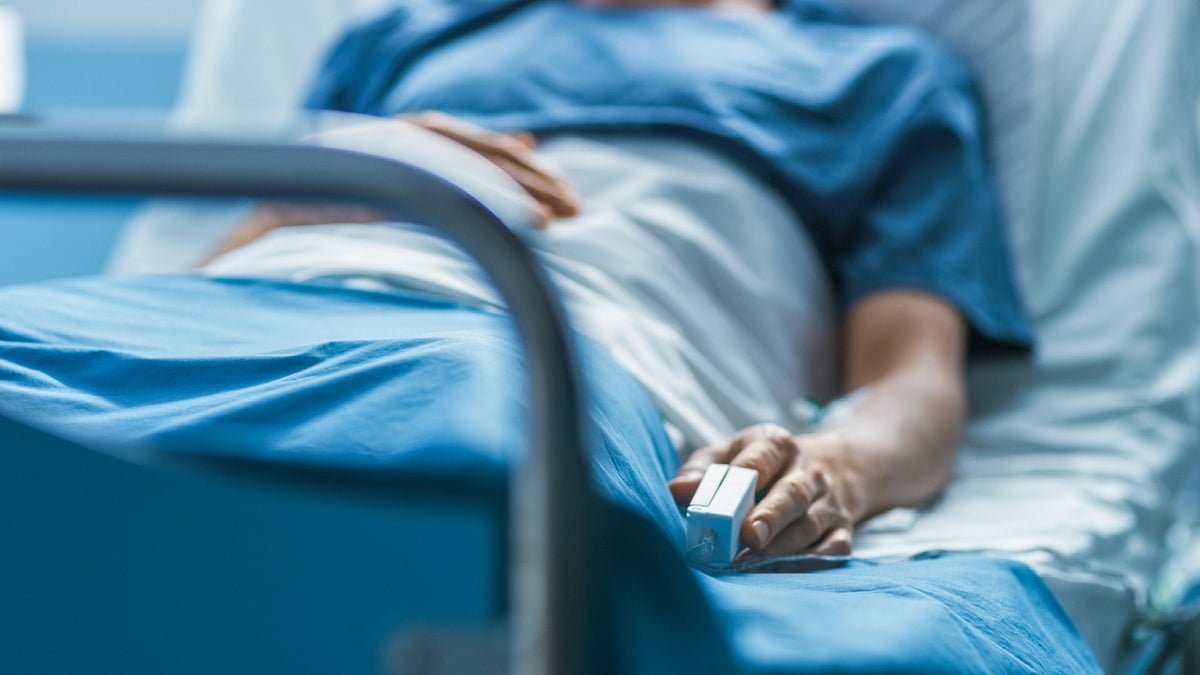
Health care providers lack the tools required to determine which patients with devastating injuries will recover, to what extent they will recover and how long that will take, a researcher said. (iStock)
Based on the study findings, Bodien recommended that clinicians should be “very cautious” with “irreversible decisions” like withdrawing life support in the days following traumatic brain injury.
“Families should also be aware of our results so that they can advocate for delaying a decision to discontinue life support if this is aligned with what they believe their loved one would want,” she added.
Limitations of the research
There were some limitations to the study, Bodien said.
“The sample size of the study was small, which made it difficult to find an adequate number of participants who did not have life support discontinued and were clinically similar, or ‘matched,’ to those who had life support discontinued,” she told Fox News Digital.
CLICK HERE TO SIGN UP FOR OUR HEALTH NEWSLETTER
Among the participants who did not have life support discontinued, the researchers were not able to follow all of them for a six-month period.
Another limitation is that the researchers used clinical variables that were available on the day of, or the day after, hospitalization — but sometimes decisions to discontinue life support are made several days later.
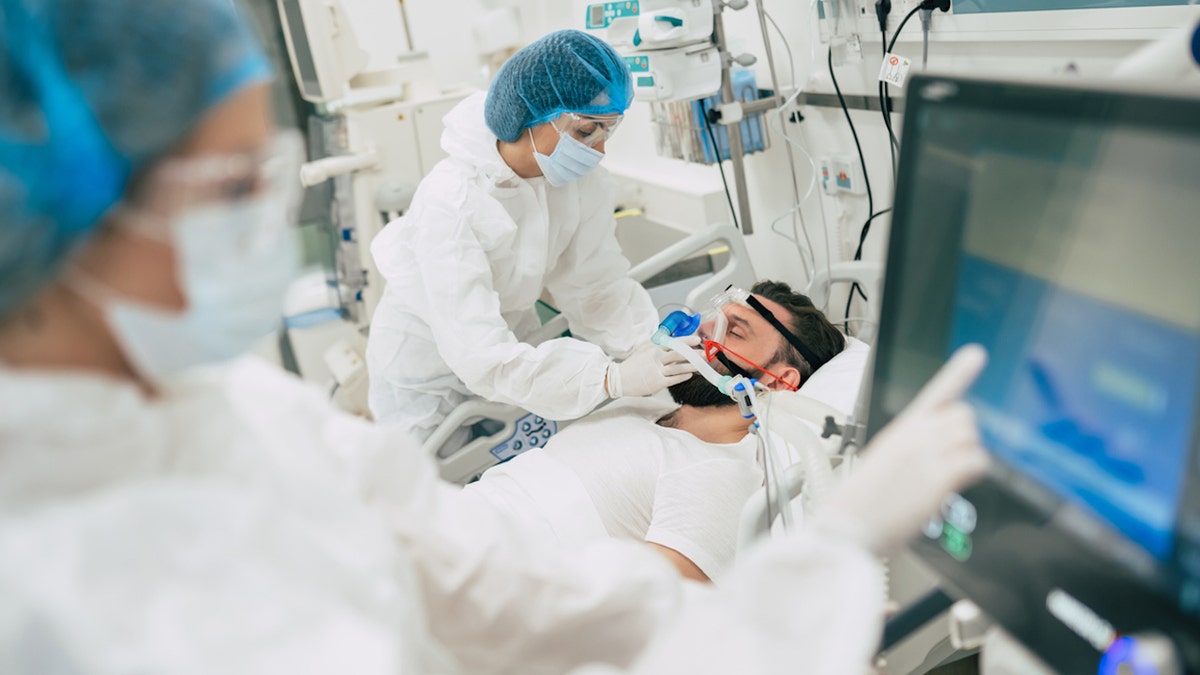
Based on the findings, study author Yelena Bodien (not pictured) recommended that clinicians should be “very cautious” with “irreversible decisions” such as withdrawing life support in the days following traumatic brain injury. (iStock)
“There are many considerations that may lead to a decision to discontinue life support after traumatic brain injury that we were unable to factor into our analyses,” she continued.
“For example, personal beliefs, religion and advanced directives could all affect decision-making but were not captured in our study.”
Bodien also noted that the Harvard study was focused on traumatic brain injury and cannot be generalized to other injuries and illnesses.
For more Health articles, visit www.foxnews.com/health.
Health
7 important health stories you might have missed this week: Catch up here

Every day of the week, Fox News Digital publishes a range of health pieces to keep you up-to-date on the most important wellness news.
We cover cutting-edge medical research, breakthrough medications, mental health challenges, personal medical dramas and more.
In case you missed them, here are a few of our biggest health stories from this week.
CLICK HERE TO SIGN UP FOR OUR HEALTH NEWSLETTER
You can see a full list of recent health pieces at http://www.foxnews/health.
1. Hunger could be tied to sleep, expert says
If you’re feeling hungrier than usual lately, your sleep routine could be the culprit. A nutritional biologist offers tips for regulating sleep and curbing unhealthy cravings. Click here to get the story.
The food you eat can determine the quality of your sleep, according to experts. Here are the latest findings. (iStock)
2. Health agencies issue bird flu update: ‘Alert, not alarmed’
The CDC and WebMD teamed up this week to deliver an hour-long update on Thursday about the current bird flu outbreak. Fox News Digital breaks down the most important points. Click here to get the story.
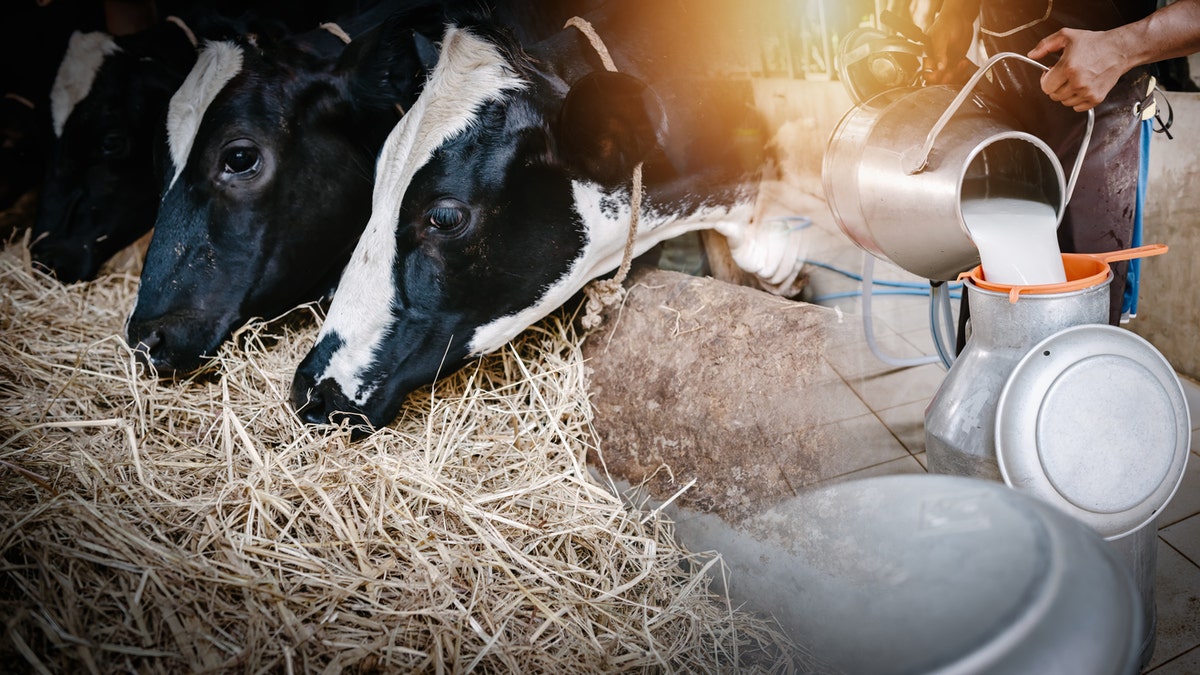
Experts assured the public that drinking pasteurized milk remains safe. (iStock)
3. Melanoma patients share their stories
For Skin Cancer Awareness Month, two melanoma patients are speaking up about their symptoms, treatment and prevention tips to help others avoid the potentially deadly disease. Click here to get the story.
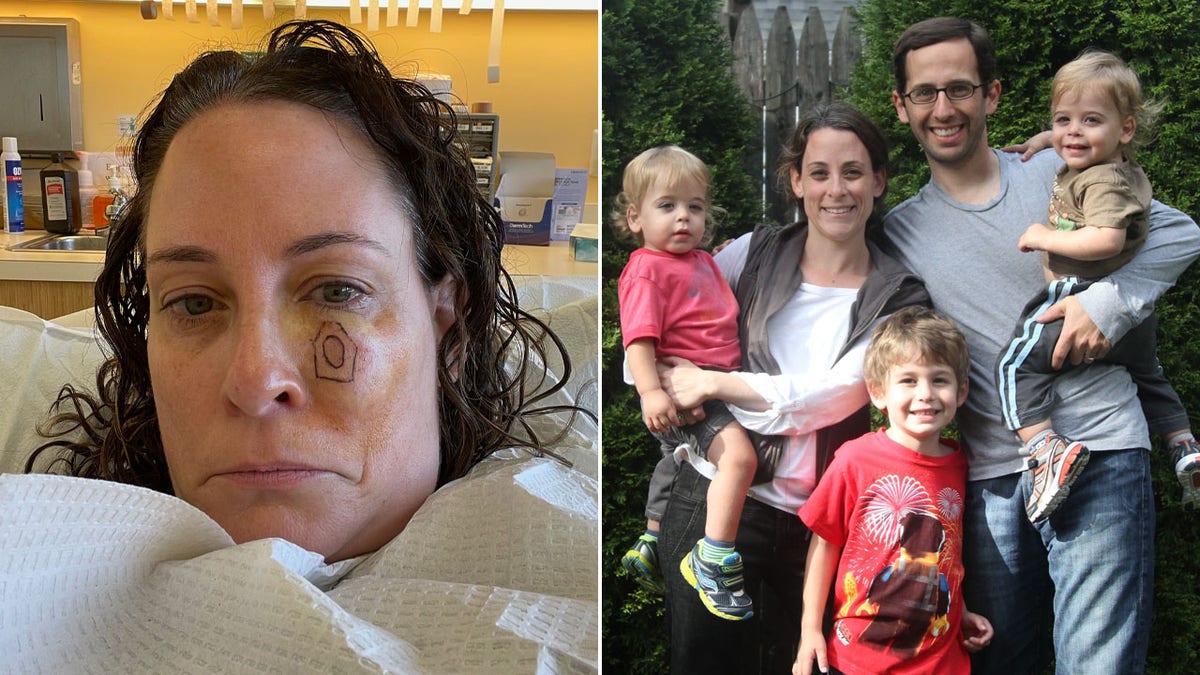
Abby Weiner, pictured at left and at right with her husband and sons, was diagnosed with melanoma in Oct. 2023. (Abby Weiner)
4. Report reveals staggering discrepancy in health care costs
Patients with private health insurance could be charged up to 300% more than those with Medicare, a new report reveals. Doctors explain the reasons for the sticker shock. Click here to get the story.
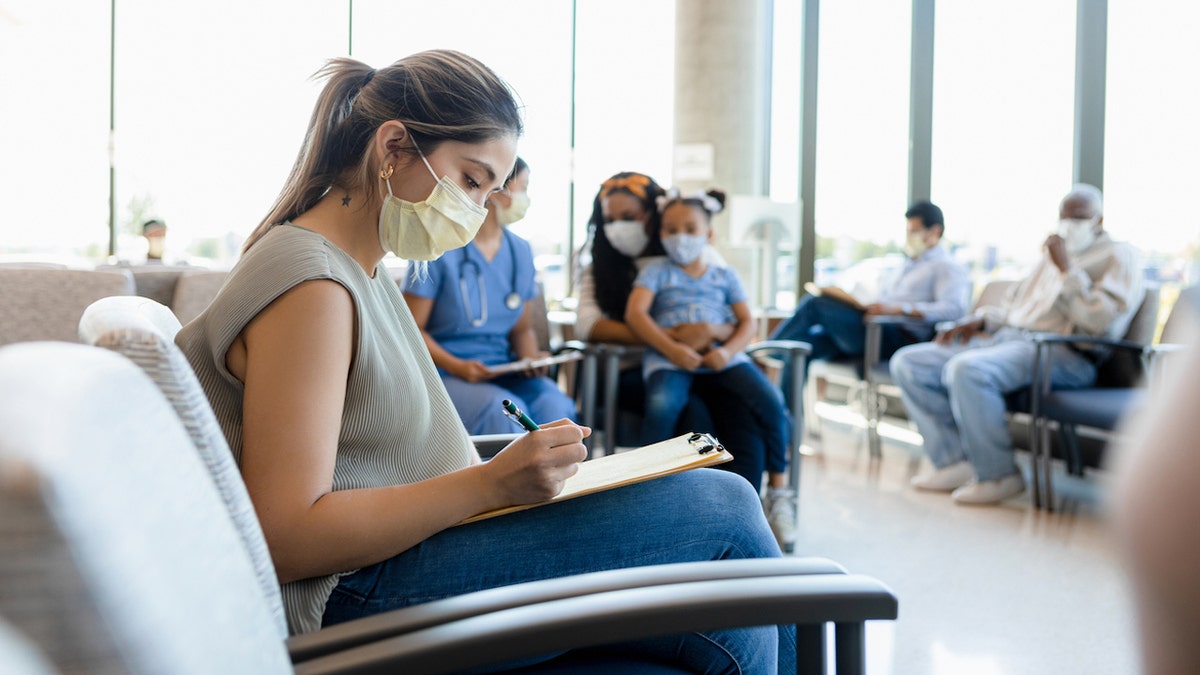
The new report published the names and pricing models of more than 4,000 U.S. hospitals. (iStock)
5. Pastor shares important message about depression
A Dallas pastor who fought his own depression battle shares how he overcame the disease – and why it’s so important for those in church leadership to seek help when they need it. Click here to get the story.

Mark Dance, pictured with his wife, Janet Dance, said he suffered through a three-year period of depression while serving as a pastor. (Dr. Mark Dance)
6. Nurse’s depression is cured through breakthrough tech
A Chicago nurse struggled with COVID-19-related PTSD and depression for years until electrical brain tapping therapy finally gave her a new lease on life. Click here to get the story.
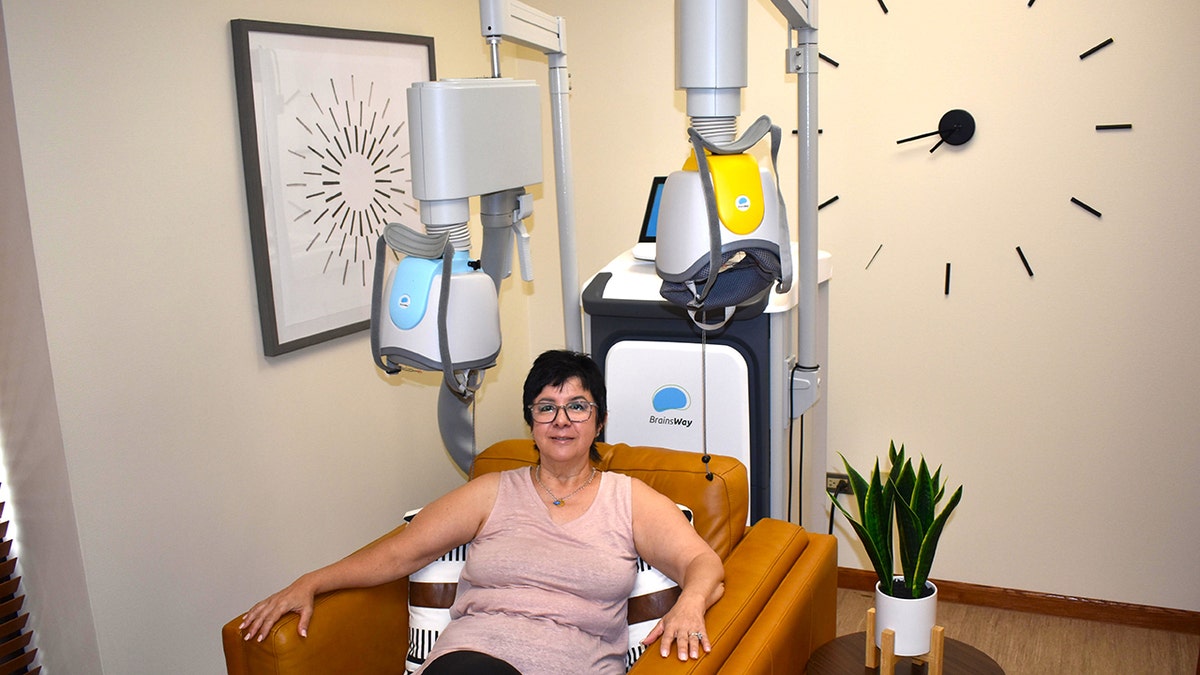
“Had I not had this treatment today, I don’t know where I’d be,” the patient told Fox News Digital. (Melanie Eilers)
7. Young vaper shares warning after nearly dying
A 22-year-old man in Nebraska required a double lung transplant due to vaping. Jackson Allard shares his story as a cautionary tale. “I had a 1% chance to live,” he said. Click here to get the story.

This week’s health stories have included a pastor’s depression journey, the sleep-hunger connection, health care cost discrepancies, bird flu updates and more. (Mark Dance, iStock)
For more Health articles, visit www.foxnews.com/health.
-

 News1 week ago
News1 week agoSkeletal remains found almost 40 years ago identified as woman who disappeared in 1968
-

 World1 week ago
World1 week agoIndia Lok Sabha election 2024 Phase 4: Who votes and what’s at stake?
-

 Politics1 week ago
Politics1 week agoTales from the trail: The blue states Trump eyes to turn red in November
-

 World1 week ago
World1 week agoBorrell: Spain, Ireland and others could recognise Palestine on 21 May
-

 World1 week ago
World1 week agoCatalans vote in crucial regional election for the separatist movement
-

 Politics1 week ago
Politics1 week agoNorth Dakota gov, former presidential candidate Doug Burgum front and center at Trump New Jersey rally
-

 Movie Reviews1 week ago
Movie Reviews1 week ago“Kingdom of the Planet of the Apes”: Disney's New Kingdom is Far From Magical (Movie Review)
-

 World1 week ago
World1 week agoUkraine’s military chief admits ‘difficult situation’ in Kharkiv region


/cdn.vox-cdn.com/uploads/chorus_asset/file/23249791/VRG_ILLO_STK001_carlo_cadenas_cybersecurity_virus.jpg)










